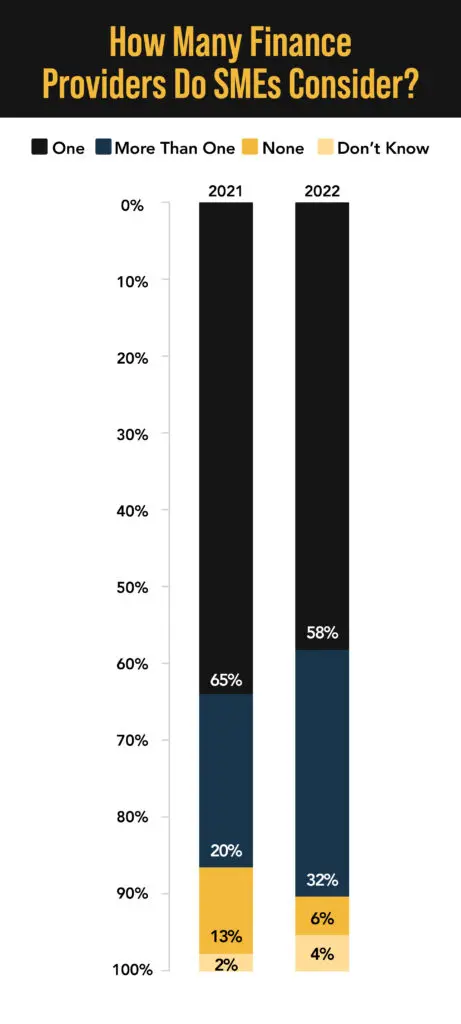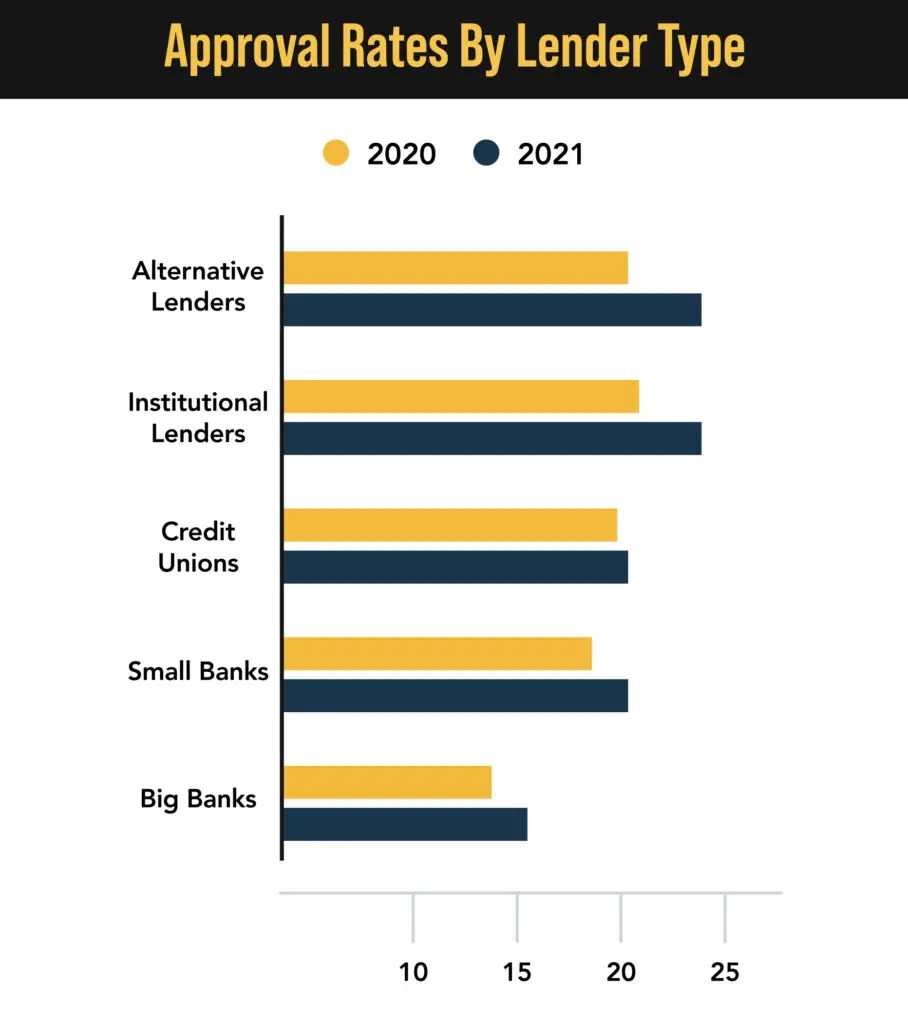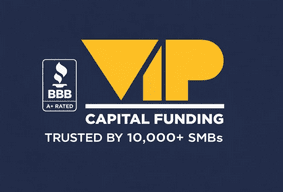In today’s rapidly evolving business landscape, supply chain efficiency is a critical factor in determining the success of small businesses in both the retail and manufacturing sectors. The ability to swiftly expand a fleet, manage warehouse operations effectively, and integrate advanced technology can be the difference between thriving and just surviving. One powerful tool that small businesses can leverage to achieve these objectives is the use of private small business loans. These loans offer an infusion of capital that can be used to enhance various facets of supply chain management, thereby driving growth and improving operational efficiency.
This blog will explore how private supply chain loans for small businesses can empower businesses to expand their fleets, upgrade warehouse management systems, and integrate cutting-edge technology, all while maintaining a competitive edge in their respective markets.
The Importance of Supply Chain Optimization for Small Businesses
Before delving into how private small business loans can aid in specific areas, it’s crucial to understand why supply chain optimization is vital for small businesses. Efficient supply chain management ensures that businesses can meet customer demands promptly, reduce operational costs, and improve overall service quality. According to a 2023 report by the Council of Supply Chain Management Professionals, businesses that optimize their supply chain operations can achieve cost reductions of up to 15% and improve inventory turnover by 30%.
Given these potential benefits, it becomes clear why small businesses, whether in retail or manufacturing, should prioritize supply chain improvements. However, these enhancements often require significant capital investments, which is where private small business loans come into play.
1. Fleet Expansion: Accelerating Delivery Capabilities
One of the primary areas where small businesses can use private loans is fleet expansion. Whether it’s adding delivery vans, upgrading to more fuel-efficient trucks, or investing in electric vehicles to reduce environmental impact, fleet expansion requires a considerable amount of capital.
The Role of Private Small Business Loans in Fleet Expansion
Private small business loans provide the necessary capital to make these investments without disrupting cash flow. For instance, a business looking to expand its delivery fleet might consider a working capital business loan to finance the purchase of additional vehicles. Such loans offer flexibility in terms of repayment schedules and interest rates, allowing businesses to align their loan repayments with their revenue cycles.
Fleet expansion can lead to increased delivery speed and capacity, which directly impacts customer satisfaction. A survey by Capgemini found that 80% of customers are willing to pay more for same-day delivery. By expanding their fleets, small businesses can tap into this growing demand for faster delivery times, potentially increasing their revenue.
2. Upgrading Warehouse Management Systems: Enhancing Operational Efficiency
Efficient warehouse management is at the core of any effective supply chain. For small businesses, especially in retail and manufacturing, the warehouse serves as the hub for inventory management, order fulfillment, and shipping. An outdated warehouse management system (WMS) can lead to inefficiencies, including mismanaged inventory, delayed shipments, and increased labor costs.
Financing Warehouse Management Upgrades with Private Loans
To upgrade their WMS, small businesses can consider equipment financing loans. These loans are specifically designed to finance the purchase of equipment and technology necessary for business operations. By securing an equipment financing loan, a small business can upgrade its warehouse management software, purchase new inventory tracking systems, and even invest in automation tools to streamline operations.
For instance, a small business in Georgia looking to improve its warehouse efficiency might explore a Georgia small business loan tailored for technological upgrades.

Modernizing warehouse operations not only reduces errors but also improves inventory accuracy, enabling businesses to respond more effectively to market demands. According to a 2022 study by Gartner, companies that have upgraded their WMS saw a 25% reduction in operational costs and a 35% improvement in order accuracy.
3. Technology Integration: Driving Innovation and Competitiveness
In an era where technology drives business innovation, integrating advanced technology into supply chain operations is no longer optional—it’s a necessity. From implementing Internet of Things (IoT) devices for real-time tracking to using artificial intelligence (AI) for demand forecasting, technology integration can significantly enhance supply chain efficiency.
How Private Loans Facilitate Technology Integration
Integrating advanced technology requires significant capital, which many small businesses might not have readily available. This is where private small business loans come into play. Small businesses can opt for short term loans for small business or working capital loans to finance technology integration projects. These loans offer quick access to funds, allowing businesses to invest in technology without depleting their reserves.
For instance, a manufacturing business in Virginia looking to enhance its production processes might consider a Virginia small business loan to finance the integration of AI-driven predictive maintenance tools.
By leveraging these loans, small businesses can invest in technologies that improve supply chain visibility, enhance data analytics capabilities, and optimize inventory management. A report by McKinsey & Company highlighted that businesses that have adopted digital supply chain technologies have seen a 15% reduction in inventory costs and a 10% increase in service levels.
Exploring the Different Types of Private Small Business Loans
When considering how to finance supply chain improvements, small businesses have several options to choose from. Let’s explore some of the most common types of private small business loans available:
1. Working Capital Loans:
These loans are designed to cover the day-to-day operational expenses of a business. They are particularly useful for businesses looking to maintain liquidity while investing in supply chain improvements. Working capital loans for small businesses can be used for various purposes, including purchasing inventory, managing payroll, and covering short-term expenses related to fleet expansion or warehouse upgrades.
2. Equipment Financing Loans:
As mentioned earlier, these loans are specifically designed to finance the purchase of equipment necessary for business operations. Equipment financing for small business is ideal for companies looking to upgrade their WMS, invest in automation tools, or purchase new delivery vehicles.
3. Short-Term Business Loans:
These loans offer a quick infusion of cash and are typically repaid within a year. Short term loans for business are ideal for businesses looking to finance immediate supply chain needs, such as purchasing inventory or covering unexpected expenses.
4. Construction Business Financing:
For small businesses involved in construction, specialized loans such as small business construction loans can help finance the expansion of storage facilities or the upgrade of heavy machinery necessary for logistics and supply chain operations.
5. Online Small Business Loans:
Many private lenders offer online small business loans that provide quick access to funds through a streamlined online application process. These loans are particularly beneficial for businesses needing immediate capital to address supply chain bottlenecks.
The Strategic Benefits of Leveraging Private Small Business Loans
Private small business loans offer a myriad of strategic benefits that can significantly enhance a company’s ability to optimize its supply chain operations. When businesses in the retail and manufacturing sectors choose to leverage these loans, they unlock opportunities to streamline their processes, improve operational efficiency, and drive growth. Let’s delve deeper into the key benefits of using private small business loans for supply chain improvements:
1. Increased Flexibility
One of the most significant advantages of private small business loans is their increased flexibility compared to traditional bank loans. Private loans are often designed to accommodate the unique needs of small businesses, offering a range of terms and conditions that can be customized. For instance, a small business might need capital to upgrade its fleet of delivery vehicles but is concerned about the seasonal nature of its cash flow. Private lenders are typically more willing to negotiate repayment schedules, allowing businesses to set terms that align with their revenue cycles.

Additionally, private loans often come with fewer restrictions on how the funds can be used. Unlike some traditional loans that might require businesses to adhere to strict usage guidelines, private loans provide the flexibility to allocate funds as needed. This means a business can use the same loan to finance multiple supply chain improvements—such as expanding its fleet, upgrading warehouse management systems, and integrating new technologies—without the need to apply for separate loans for each purpose.
This flexibility extends to the loan amounts and repayment terms as well. Private lenders may offer options that range from short term loans for small business to longer-term financing solutions, providing businesses with the ability to choose a loan structure that best suits their financial strategy and operational needs.
2. Quick Access to Capital
In the fast-paced world of retail and manufacturing, timing is crucial. Opportunities to optimize supply chains or respond to market demands often require swift action. Traditional bank loans can involve lengthy application processes, extensive paperwork, and prolonged approval times, which can delay critical business decisions. In contrast, private lenders typically offer faster approval and disbursement processes, enabling small businesses to access the funds they need much more quickly.
For example, a company looking to capitalize on a sudden surge in demand may require immediate funding to increase inventory levels or ramp up production. In such scenarios, waiting weeks or even months for a traditional loan approval is not feasible. Private small business loan providers often streamline their application processes, with many offering online applications and expedited decision-making. This speed is particularly advantageous for small businesses that need to address urgent supply chain needs or seize market opportunities swiftly.
Moreover, the ability to quickly secure a loan means that businesses can reduce downtime and prevent disruptions in their supply chain. Whether it’s financing the purchase of additional delivery vehicles through equipment financing loans or upgrading warehouse technology with working capital loans for small business, the rapid access to capital allows businesses to maintain momentum and stay ahead of competitors.
3. Reduced Financial Strain
Managing cash flow is one of the biggest challenges for small businesses, especially when faced with the need for significant investments in supply chain improvements. Private small business loans help alleviate this pressure by allowing businesses to spread the cost of these improvements over time, rather than having to make large, up-front payments.
For instance, upgrading a warehouse management system or expanding a delivery fleet requires substantial financial outlays. Instead of depleting reserves or sacrificing other critical investments, businesses can use private loans, such as small business loans in California or Florida, to finance these enhancements over a period that suits their cash flow capabilities. This approach reduces the immediate financial burden and enables businesses to allocate resources more effectively across different areas of their operations.

Additionally, private loans often offer more favorable repayment terms, such as lower interest rates for well-qualified borrowers or options for interest-only payments during initial periods. This can significantly ease the financial strain on businesses, allowing them to focus on growth and operational efficiency rather than on meeting onerous repayment obligations. By choosing the right loan product—whether it’s small business loans in Texas or Virginia—companies can find terms that reduce financial strain and support sustainable growth.
4. Competitive Advantage
In today’s highly competitive market environment, maintaining a competitive edge is essential for small businesses. Investing in supply chain improvements such as fleet expansion, warehouse management upgrades, and technology integration can significantly enhance a company’s operational capabilities and customer service levels, providing a distinct competitive advantage.
By securing private small business loans to finance these initiatives, companies can quickly implement the changes needed to stay ahead of competitors. For example, a business that expands its delivery fleet using a small business loan fast is better positioned to offer quicker delivery times and more reliable service than competitors who lack the capacity. This can lead to increased customer satisfaction, repeat business, and ultimately, greater market share.
Similarly, upgrading warehouse management systems with the help of equipment financing for small business can streamline operations, reduce errors, and improve inventory management. This not only lowers costs but also enhances the business’s ability to respond quickly to changes in demand, thereby improving overall market responsiveness. By integrating advanced technologies, such as IoT devices and AI-driven analytics, businesses can further enhance their supply chain visibility and decision-making capabilities, positioning themselves as leaders in their industry.
Moreover, leveraging private loans to finance supply chain enhancements can help small businesses differentiate themselves from competitors who may not have the same access to capital. This access allows for rapid adaptation to market trends, customer preferences, and technological advancements, ensuring that businesses remain competitive and relevant in their respective sectors.
5. Enhanced Financial Planning and Risk Management
In addition to the benefits outlined above, using private small business loans to finance supply chain improvements also supports better financial planning and risk management. By obtaining a loan, businesses can preserve their working capital and maintain liquidity, which is crucial for navigating uncertainties and potential disruptions in the supply chain.
For example, a business facing seasonal fluctuations in demand might use working capital loans for small business to cover operational costs during slower periods without tapping into emergency reserves. This approach allows the business to maintain a healthy cash flow while still investing in essential supply chain improvements, such as fleet expansion or warehouse upgrades.
Additionally, having access to a steady source of funding can help businesses mitigate risks associated with unexpected events, such as supply chain disruptions, equipment failures, or market downturns. By proactively securing short term business financing or short-term small business loans, businesses can ensure they have the financial resources to address unforeseen challenges without compromising their long-term strategic goals.
Conclusion
Empowering your supply chain through private small business loans is a strategic move that can lead to significant operational efficiencies and growth opportunities. Whether it’s expanding a delivery fleet, upgrading warehouse management systems, or integrating advanced technologies, the right financing can make these objectives achievable without straining your cash flow.
By understanding the various loan options available—from online small business loan applications to short term business funding—and exploring region-specific loan programs like small business loans in California, Florida, Texas, Washington, and Nevada, small businesses can strategically plan their supply chain improvements. This not only enhances their operational efficiency but also strengthens their competitive position in the market.
Get Moving with VIP Capital Funding
VIP Capital Funding offers tailored financing solutions to help small businesses expand their fleets, upgrade warehouse management systems, and integrate advanced technologies. Don’t let financial constraints hold you back—apply now for a private small business loan and empower your business to thrive in today’s competitive market. Contact us today to discuss your options and find the perfect loan to suit your needs.


